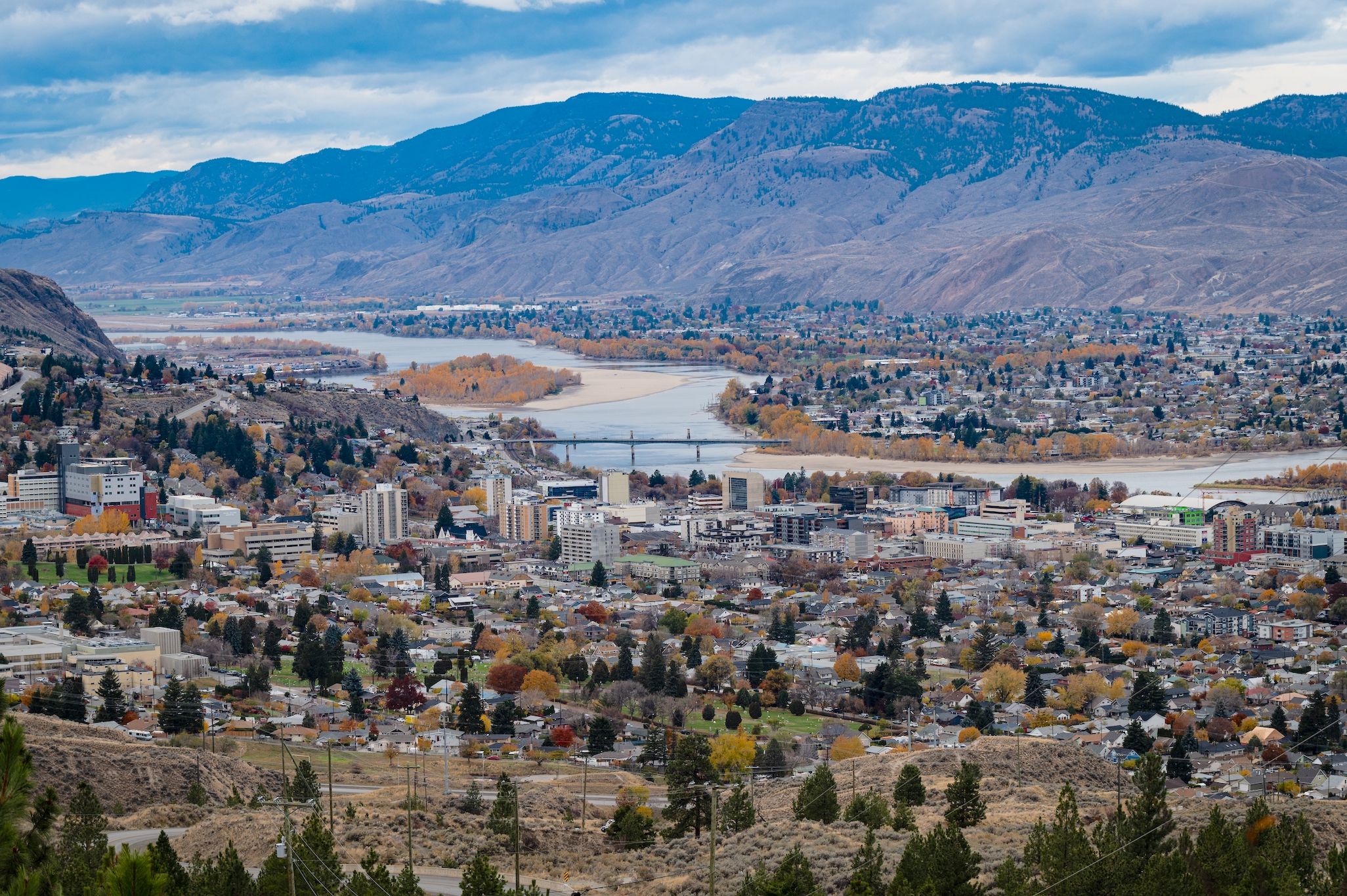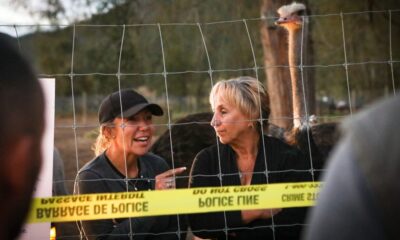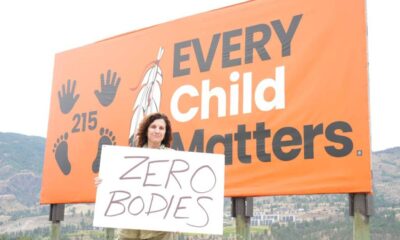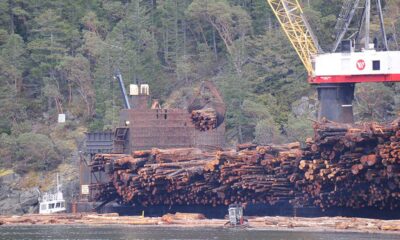Politics
Secwepemc First Nation Seeks Aboriginal Title Over Kamloops Area

The Secwepemc First Nation has filed a significant claim for Aboriginal title over a vast area in British Columbia’s Interior, including the entirety of the City of Kamloops and the Sun Peaks Resort. This legal action, initiated in September 2015, has raised concerns among property owners regarding the implications for existing private land rights. The claim, which extends beyond urban areas to include roads and railways, asserts that the First Nation’s traditional territory covers approximately 180,000 square kilometers, nearly 20 percent of British Columbia’s total land area.
Independent MLA for Surrey-Cloverdale, Elenore Sturko, is urging the provincial government, led by Premier David Eby, to disclose all ongoing Aboriginal title lawsuits, particularly those that may intersect with private property rights. Sturko emphasized that the public deserves transparency, as these legal battles can have a profound impact on entire communities. Her statement reflects growing unease following a recent ruling that granted Aboriginal title to the Cowichan Tribes in Richmond, which she described as “just the tip of the iceberg.”
The implications of such claims could redefine property ownership in British Columbia, where private land rights are primarily based on fee simple titles. The provincial government, along with the federal government, is currently appealing the Cowichan ruling, which has led to concerns over the legal precedents being set. Sturko criticized the government’s handling of these cases, asserting that they have failed to notify affected landowners about ongoing litigation that directly impacts their rights.
Details of the Secwepemc Claim
The Secwepemc First Nation’s claim includes not only the City of Kamloops, which spans nearly 300 square kilometers and is home to over 100,000 residents, but also extends to various municipalities and private properties. The First Nation argues that the Ajax copper and gold mine, a proposed project near Kamloops, threatens their Indigenous rights and would cause environmental damage. Their claim seeks to protect what they describe as “sacred” lands.
The provincial government’s lawyers formally denied most allegations made by the Secwepemc in January 2016, arguing that the claim was an “abuse of process.” They contended that the disputed lands are primarily privately owned and that any Aboriginal title claims would conflict with existing rights granted to private landowners. The provincial response also questioned the historical basis for the Secwepemc’s claims, asserting that their ancestors did not have exclusive occupation of the territory in question.
Sturko highlighted that the legal process for such claims can extend over many years, exemplified by the lengthy litigation of the Cowichan Tribes’ claim, which spanned a decade and included 513 court hearings. Unfortunately, property owners in the Richmond area were not informed of the proceedings until after the judge’s decision, which extended Aboriginal title to both public and private properties.
Government Response and Public Concerns
Premier Eby has acknowledged the anxiety faced by homeowners in the affected areas, stating that the provincial government is committed to overturning the Cowichan ruling during the appeal process. He emphasized the importance of ensuring that landowners receive timely information about such claims. Eby has invited affected residents to document any financial impacts that may arise from the ongoing legal situation, indicating that this evidence could support the province’s appeal.
Despite these assurances, critics like Sturko argue that the government has not done enough to protect the interests of private property owners. They claim that the lack of transparency surrounding these legal proceedings could lead to further disputes and uncertainty in the land ownership landscape of British Columbia. Sturko called for a comprehensive review of all Aboriginal title claims and urged Eby to prioritize public disclosure.
The recent signing of the North Coast Protection Declaration by Eby and First Nations leaders has also stirred debate. While the provincial government promotes the agreement as a means to balance environmental conservation and Indigenous rights with economic interests, some critics argue that it undermines democratic processes by not involving public consultation. MLA Jordan Kealy has voiced strong opposition, asserting that the declaration gives undue power to a select few First Nations leaders while alienating broader community interests.
As the legal battles continue, the situation remains fluid, with potential ramifications for landowners, Indigenous claims, and government policies in British Columbia. The outcome of the ongoing appeals and future claims will likely shape the landscape of property rights and Indigenous relations in the province for years to come.
-

 World4 months ago
World4 months agoScientists Unearth Ancient Antarctic Ice to Unlock Climate Secrets
-

 Entertainment4 months ago
Entertainment4 months agoTrump and McCormick to Announce $70 Billion Energy Investments
-

 Lifestyle4 months ago
Lifestyle4 months agoTransLink Launches Food Truck Program to Boost Revenue in Vancouver
-

 Science4 months ago
Science4 months agoFour Astronauts Return to Earth After International Space Station Mission
-

 Technology2 months ago
Technology2 months agoApple Notes Enhances Functionality with Markdown Support in macOS 26
-

 Top Stories4 weeks ago
Top Stories4 weeks agoUrgent Update: Fatal Crash on Highway 99 Claims Life of Pitt Meadows Man
-

 Sports4 months ago
Sports4 months agoSearch Underway for Missing Hunter Amid Hokkaido Bear Emergency
-

 Politics3 months ago
Politics3 months agoUkrainian Tennis Star Elina Svitolina Faces Death Threats Online
-

 Politics4 months ago
Politics4 months agoCarney Engages First Nations Leaders at Development Law Summit
-

 Technology4 months ago
Technology4 months agoFrosthaven Launches Early Access on July 31, 2025
-

 Top Stories2 weeks ago
Top Stories2 weeks agoFamily Remembers Beverley Rowbotham 25 Years After Murder
-

 Top Stories1 week ago
Top Stories1 week agoBlake Snell’s Frustration Ignites Toronto Blue Jays Fan Fury





















